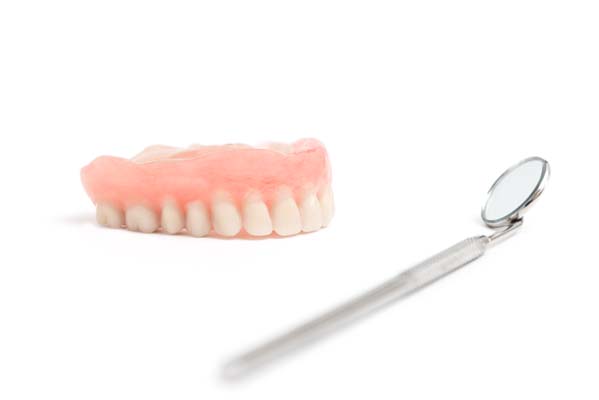What to Do When You Have a Broken Tooth

A broken tooth is quite frustrating, especially if it involves one of the front teeth. If you are dealing with this problem, you might feel embarrassed. Although the situation may be overwhelming at the time, you can relax knowing a dentist can help. Sometimes, the fix is minor. Other times, you might need to have a crown put on to restore a broken tooth.
What defines a broken tooth?
A broken tooth can consist of many different things. This might entail a significant portion of the tooth completely breaking off. It could also be a crack. Then, there is a condition called cracked tooth syndrome. In this case, a tooth breaks but without the person having a cavity or advanced gum disease.
Typical causes
A tooth breaks for many reasons. One of the most common causes is biting down on something hard. However, getting hit in the mouth while playing sports, grinding the teeth while sleeping, and trauma caused by a car accident or fall are additional possibilities. Weakened teeth put a person at a greater risk of breaking a tooth.
Weakened teeth are more prone to breaking. Things like grinding and decay can compromise the enamel, which can lead to a broken tooth. Other risk factors include consuming a significant amount of acidic foods and beverages, alcohol and drug abuse, and even acid reflux. Excessive sugar is also bad because it produces bacteria inside the mouth that can eat the enamel.
Treatments for a broken tooth
For someone who has a piece of the tooth breaking off, there are some specific steps to follow. If the break is severe and causes a lot of pain, the individual should contact the dentist right away. Otherwise, this process will help:
- Rinse the mouth with warm water.
- Apply pressure to the broken tooth using a piece of clean gauze to stop any bleeding.
- Apply an ice pack to the area of the face where the break occurred to reduce swelling and ease the pain.
- Place dental or wax over the broken tooth to prevent air from reaching it.
- Put the part of the broken tooth that fell out in a zippered plastic bag with a small amount of milk — this serves as a good medium to prevent the root from dying.
What to expect at the dentist’s office
After arriving at the dental clinic, the dentist will determine the extent of the damage. Based on the findings, they will recommend the appropriate treatment. If the patient saved the piece that broke off, there is a chance of bonding it back on. If the broken tooth consists of a minor piece of enamel coming off, the dentist could use either bonding or add a new filling.
For a more serious broken tooth, the dentist might suggest placing a crown over it to protect the remaining piece. However, if there is root exposure, the dentist would perform a root canal. This entails removing the pulp inside the tooth along with any debris. When completed, a crown goes on top of the tooth.
Taking care of a repaired broken tooth
After repairing the broken tooth, the patient will need to consider extra care. Most dental repairs like this need local anesthesia. This will numb the tooth and the surrounding gum tissue. The effects of the anesthesia will last for hours. Numbness will last for hours after the repair.
The patient must resist trying to open and close the mouth. This will prevent injuries to the inner lining of the cheek. It is important to keep the cheeks healthy because these soft tissues protect the repaired tooth. The patient must eat after the anesthesia fades. This will prevent burns, choking, and self-biting.
When it comes to choosing foods and beverages, the patient must be extra careful in making the right choices. Sticky, cold, and spicy foods are off the list. Alcoholic and fizzy drinks are not welcome either. The patient can have a soft diet. Milkshakes, soup, and yogurt are examples of food in this diet. Below are more pointers to consider:
- Sleep upright
- Follow instructions when taking antibiotics and pain relievers
- Use a soft-bristled toothbrush
- Eat healthy and soft foods
- Use a salt rinse for one to two days
- Apply pressure on the bleeding areas
- Avoid tough or hard foods
Seeking quick treatment
The success in fixing a broken tooth depends largely on how quickly you can see a dentist. Even if the break is minor, the sooner you get treatment, the better. By waiting, you put your tooth and health at risk. For instance, debris could cause an infection, which could spread to other parts of the body through the bloodstream. As soon as you break a tooth, contact your dentist.
Request an appointment here: https://drjosephmurray.com or call J.D. Murray DDS & Associates at (404) 410-2526 for an appointment in our East Point office.
Check out what others are saying about our dental services on Yelp: Broken Tooth in East Point, GA.
Recent Posts
A loose tooth is not something that anyone wants to deal with as an adult. Thankfully, general dentists are trained and equipped to know what to do when a patient experiences a loosened tooth. Adult teeth can become loose as a result of an infection in the oral cavity. More often than not, this is due…
If you have a broken tooth, it may not necessarily be a dental emergency. In the absence of pain, excessive bleeding, or a tooth that is knocked out completely, you can schedule an appointment at your convenience and do not need to see the dentist immediately. In most cases, broken teeth can be caused by an…
Your experienced general dentist can repair your cavities. Assessing your teeth will come first. Then, the dentist will discuss the treatment options with you. Knowing which option can help you the most can prepare you for the visit. Here are the details about the different cavity treatments that your general dentist can discuss with you.The…
General dentistry offices are responsible for the primary dental care of people of all ages. Dentists perform routine care and maintenance to keep your smile healthy and beautiful. The visits also help dentists diagnose dental issues that may not have obvious symptoms yet. Many people wonder how often they should see their dentist. The answer…


